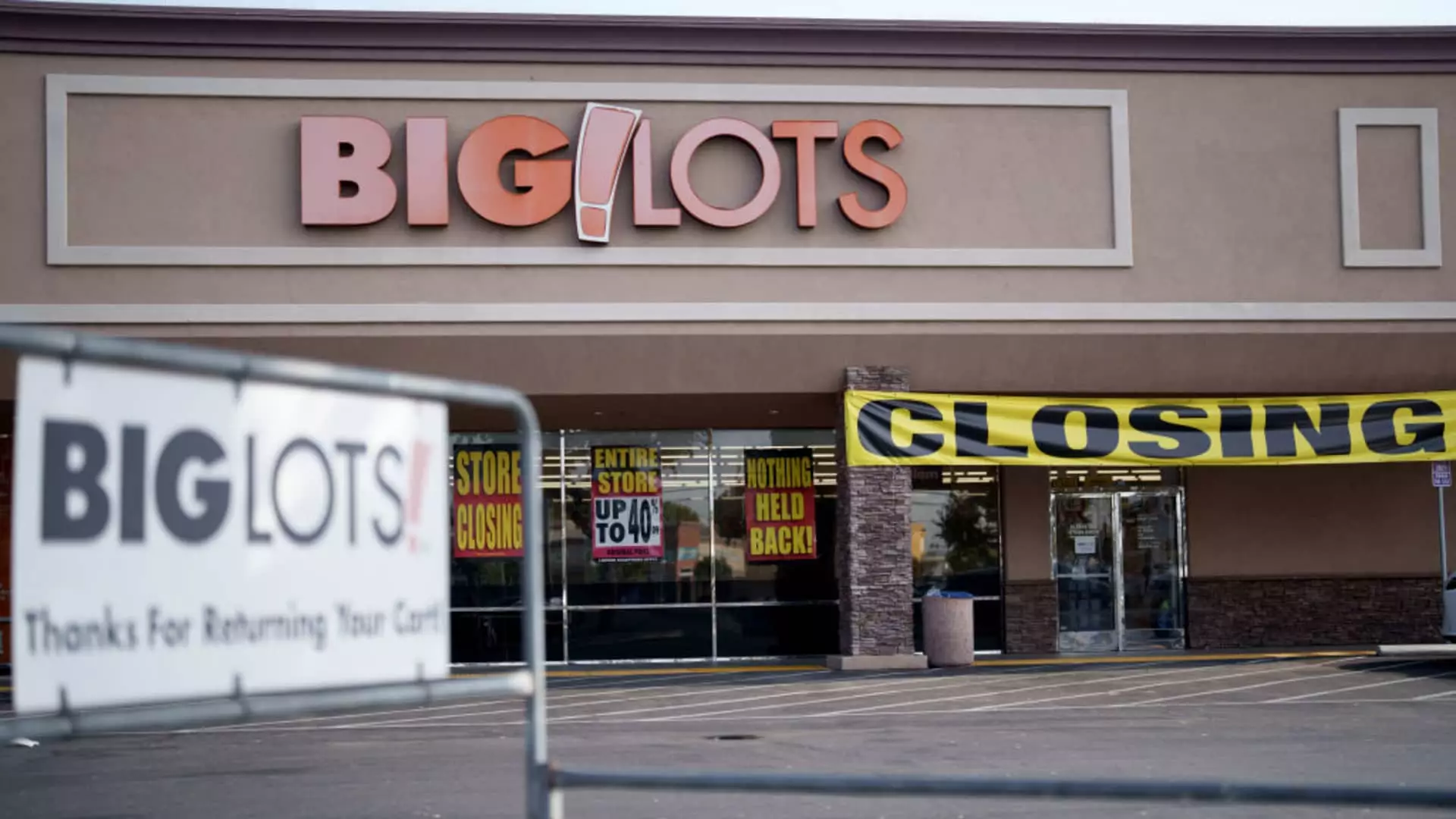Big Lots, a popular discount home goods retailer, recently filed for bankruptcy due to a combination of high interest rates and a slow housing market that impacted the demand for its affordable furniture and decor offerings. This bankruptcy filing was accompanied by a decision to sell the business to private equity firm Nexus Capital Management for approximately $760 million. This amount includes a cash payment of $2.5 million along with the remaining debt and liabilities of the company.
The company, which boasts a network of over 1,300 stores spanning 48 states, has faced declining sales in recent years following a drop in demand for home furnishings post-pandemic. As a result, Big Lots has initiated plans to close nearly 300 stores in an effort to streamline its operations, improve its financial health, and reduce costs. Despite these challenges, CEO Bruce Thorn remains optimistic about the future, emphasizing the company’s commitment to providing extreme value and an enhanced customer experience.
While Big Lots has traditionally catered to lower and middle-income consumers seeking budget-friendly home goods, it has struggled to distinguish itself in a fiercely competitive retail landscape. The emergence of online giants like Wayfair, established chains like Walmart, and specialty retailers like TJX Cos.’ Home Goods has created significant obstacles for Big Lots in terms of market differentiation and compelling product offerings.
Notably, industry experts have critiqued Big Lots for its lackluster product assortment and pricing strategies. Neil Saunders of GlobalData pointed out that while Big Lots may not always offer the best value for money, its competitors often provide similar products at lower prices. Additionally, the store layout and overall shopping experience at Big Lots have been criticized for being disjointed and overwhelming, which contrasts with the more streamlined experiences offered by rival discount retailers.
Despite these challenges, Nexus Capital Management remains optimistic about Big Lots’ potential for resurgence. The private equity firm’s managing director, Evan Glucoft, expressed confidence in the brand’s ability to reclaim its position as a leading retailer in the extreme value segment. With plans to revamp operations, optimize the product portfolio, and enhance customer engagement, Big Lots aims to emerge from bankruptcy with a stronger competitive edge and financial stability.
As part of the bankruptcy process, Big Lots will undergo a court-supervised auction to determine its future ownership. While Nexus Capital Management currently holds a favorable bid for the business, other potential buyers may step in with higher offers. The involvement of legal and financial advisors such as Davis Polk & Wardwell, Guggenheim Securities, AlixPartners, and A&G Real Estate Partners underscores the complex nature of the restructuring efforts and the company’s commitment to securing a successful outcome.
Big Lots’ journey from a thriving discount retailer to a company on the brink of bankruptcy highlights the importance of adaptability and innovation in today’s competitive retail landscape. By addressing key challenges, reevaluating its business model, and revitalizing the customer experience, Big Lots aims to overcome its current financial woes and emerge as a stronger, more resilient player in the market.

Leave a Reply